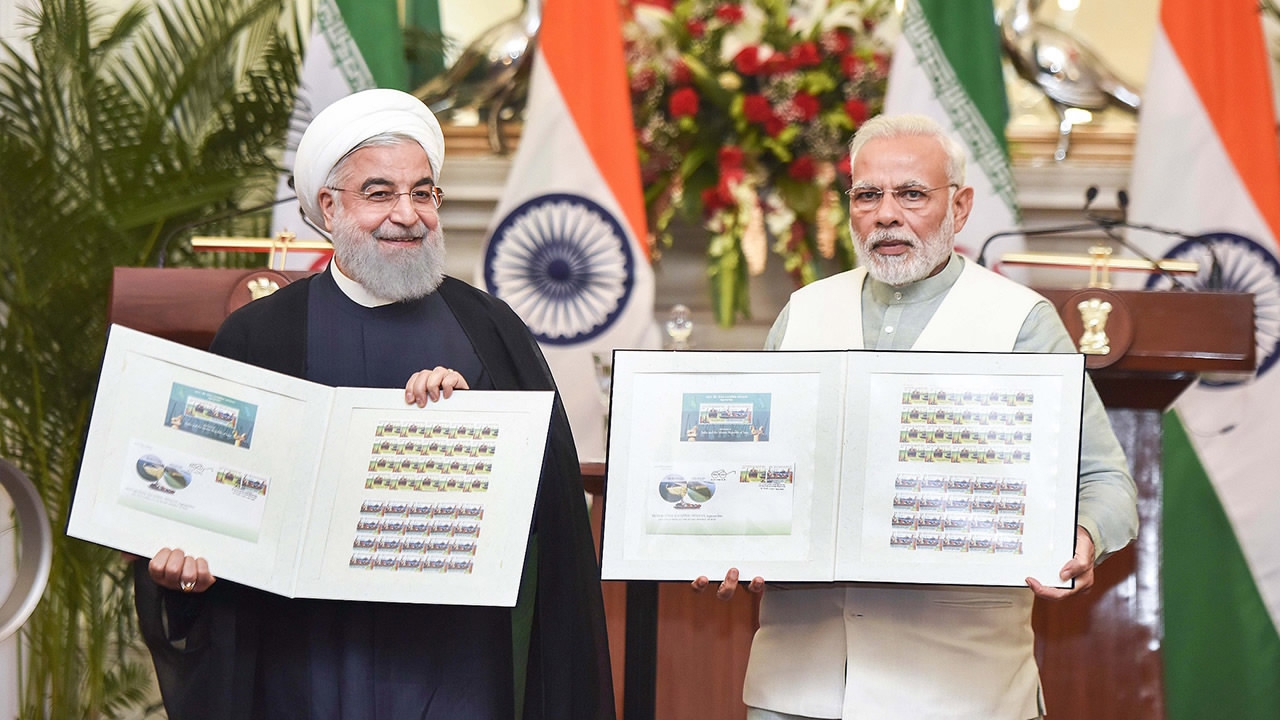Visiting Iranian President Hassan Rouhani was given a ceremonial welcome at the Rashtrapati Bhavan (the presidential residence) in Delhi on Saturday.
Indian President Ram Nath Kovind and Prime Minister Narendra Modi formally welcomed the Iranian leader who was on a three-day visit aimed at boosting cooperation in areas of defense and security, trade and investment, and energy.
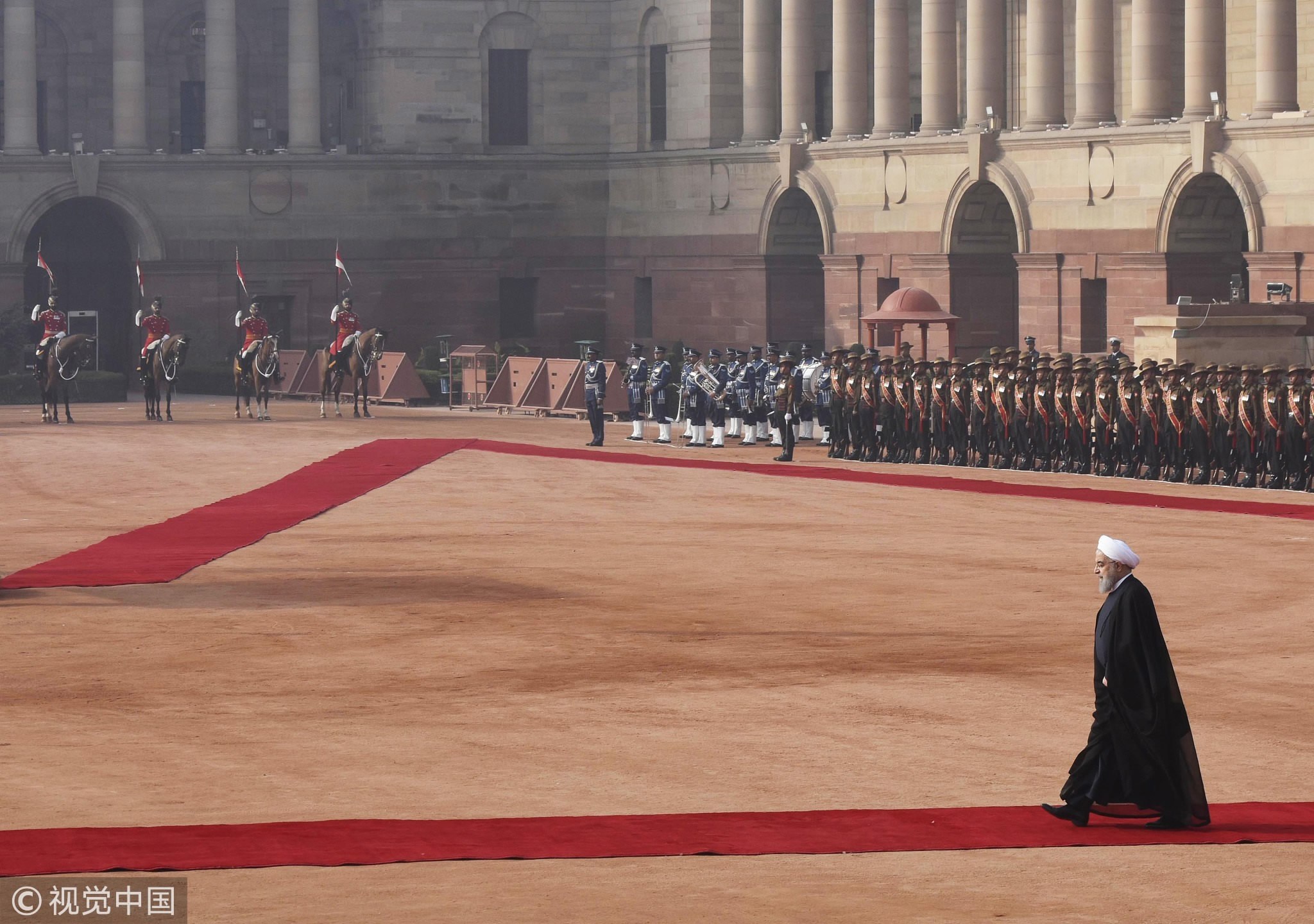
Iranian President Hassan Rouhani leaves after inspecting the guard of Honor during a ceremonial reception at the Rashtrapati Bhavan in Delhi, India, on February 17, 2018. /VCG Photo
Iranian President Hassan Rouhani leaves after inspecting the guard of Honor during a ceremonial reception at the Rashtrapati Bhavan in Delhi, India, on February 17, 2018. /VCG Photo
Modi and the Iranian President met for almost two hours after which both leaders addressed the Press and nine bilateral agreements signed were exchanged.
They included the easing of visa rules, cooperation in the medical sector and a maritime agreement on the Chabahar Port development.
Other memorandums of understanding had to do with double taxation avoidance, extradition, agricultural cooperation and port lease. Discussions between the two leaders also revolved around the threats posed by terrorism and drug trafficking.
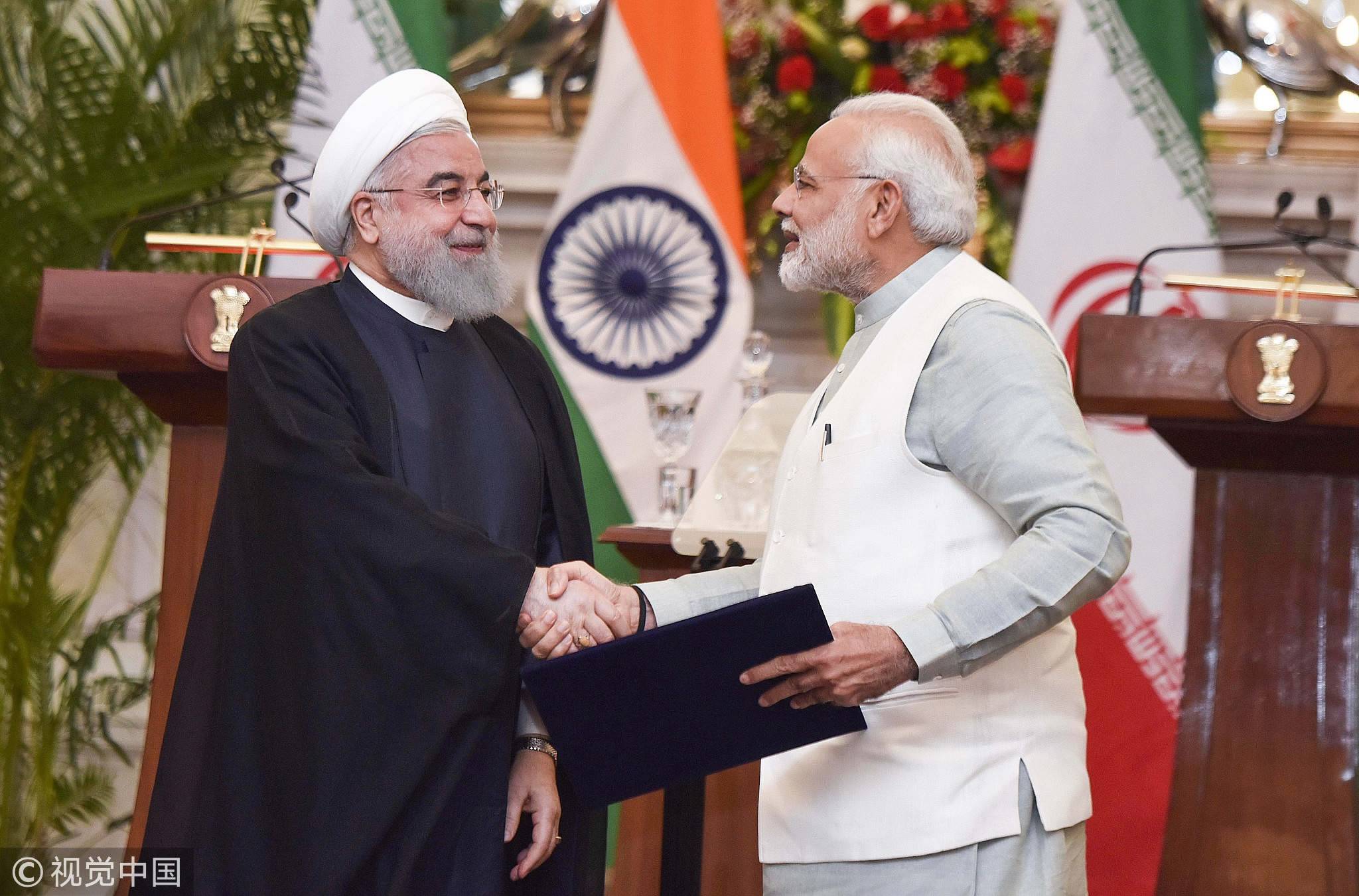
President Hassan Rouhani with PM Narendra Modi after releasing commemorative stamps at Hyderabad House, on February 17, 2018 in Delhi. /VCG Photo
President Hassan Rouhani with PM Narendra Modi after releasing commemorative stamps at Hyderabad House, on February 17, 2018 in Delhi. /VCG Photo
Iran is looking at India primarily as a partner at a time when Iran needs investments to revive its economy. India needs Iranian oil and gas and the two nations continue to pursue trade ties.
India is looking at the visit as a good opportunity for both countries to thrash out their differences both the long-pending economic issues and also to discuss the regional dynamics of West Asia.
Modi said, ‘"Both our countries want to see our neighboring friend Afghanistan become a peaceful, secure, stable, flourishing and pluralistic nation."
Rouhani said, ‘Regarding, at this point, Afghanistan must be a vivacious and secure country. We were in agreement and we decided that to develop our cooperation in this regard about Syria, Iraq and Yemen. We had shared views. We believed that regional conflicts must be resolved through diplomacy and political solutions. Both governments attached considerable importance to combating extremism, terrorism’."
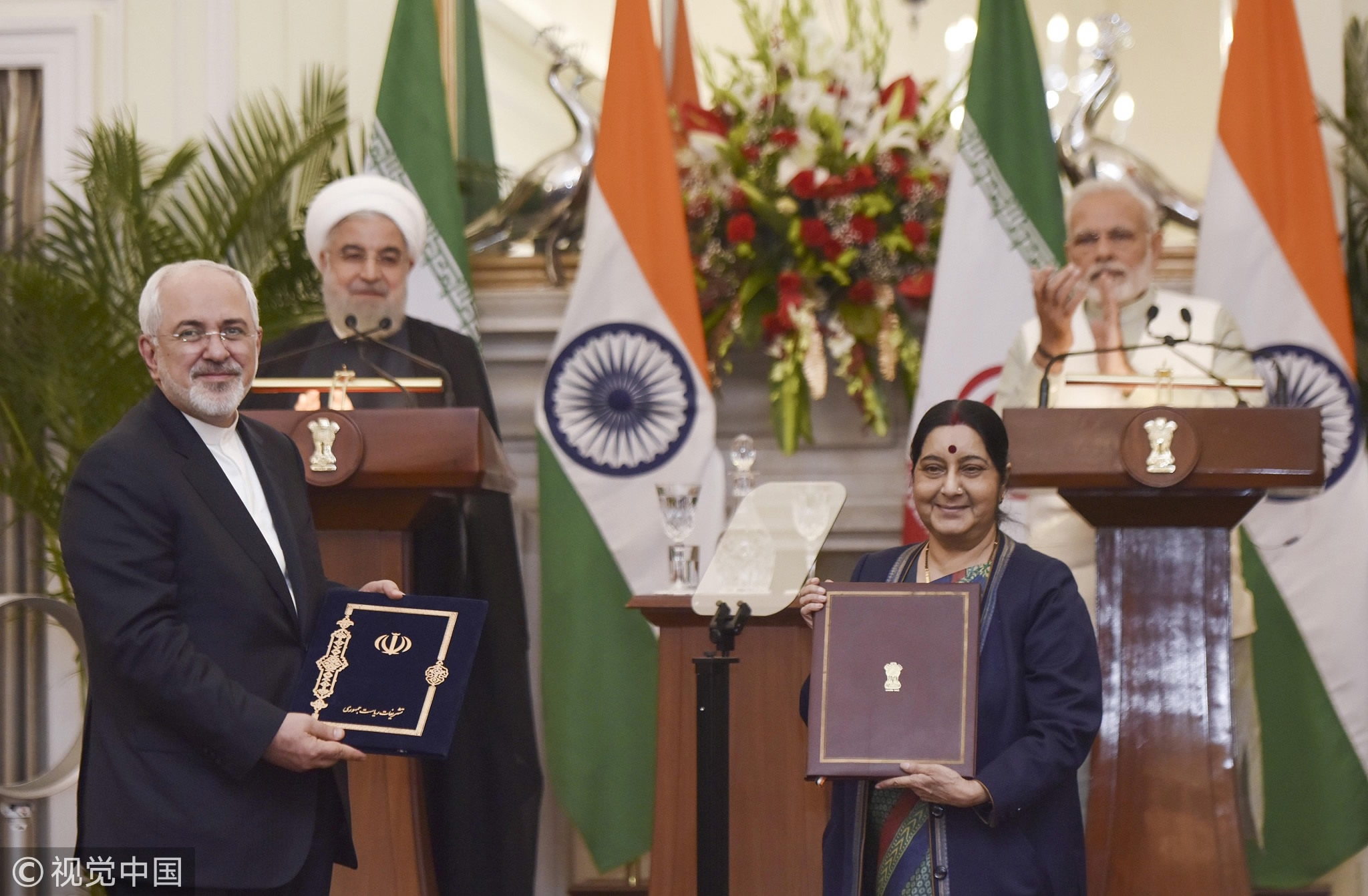
Sushma Swaraj, Indian Minister of External Affairs and Mohammad Javad Zarif, Iranian Minister of Foreign Affairs, exchange an agreement in the presence of Iran President Hassan Rouhani and Indian PM Narendra Modi at Hyderabad House, on February 17, 2018 in Delhi. /VCG Photo
Sushma Swaraj, Indian Minister of External Affairs and Mohammad Javad Zarif, Iranian Minister of Foreign Affairs, exchange an agreement in the presence of Iran President Hassan Rouhani and Indian PM Narendra Modi at Hyderabad House, on February 17, 2018 in Delhi. /VCG Photo
The focus of this bilateral was on deliverables, an aspect of India-Iran ties which has been mostly about talks but not much of implementation on the ground.
In order to seal the deals, a 21-member delegation of ministers and businessmen accompanied the Iranian president.
Agreements signed during Rouhani's three-day visit included Tehran leasing operational control of part of the Iranian east coast port of Chabahar to India for 18 months, creating a transit route between India, Iran and Afghanistan that bypasses Pakistan.
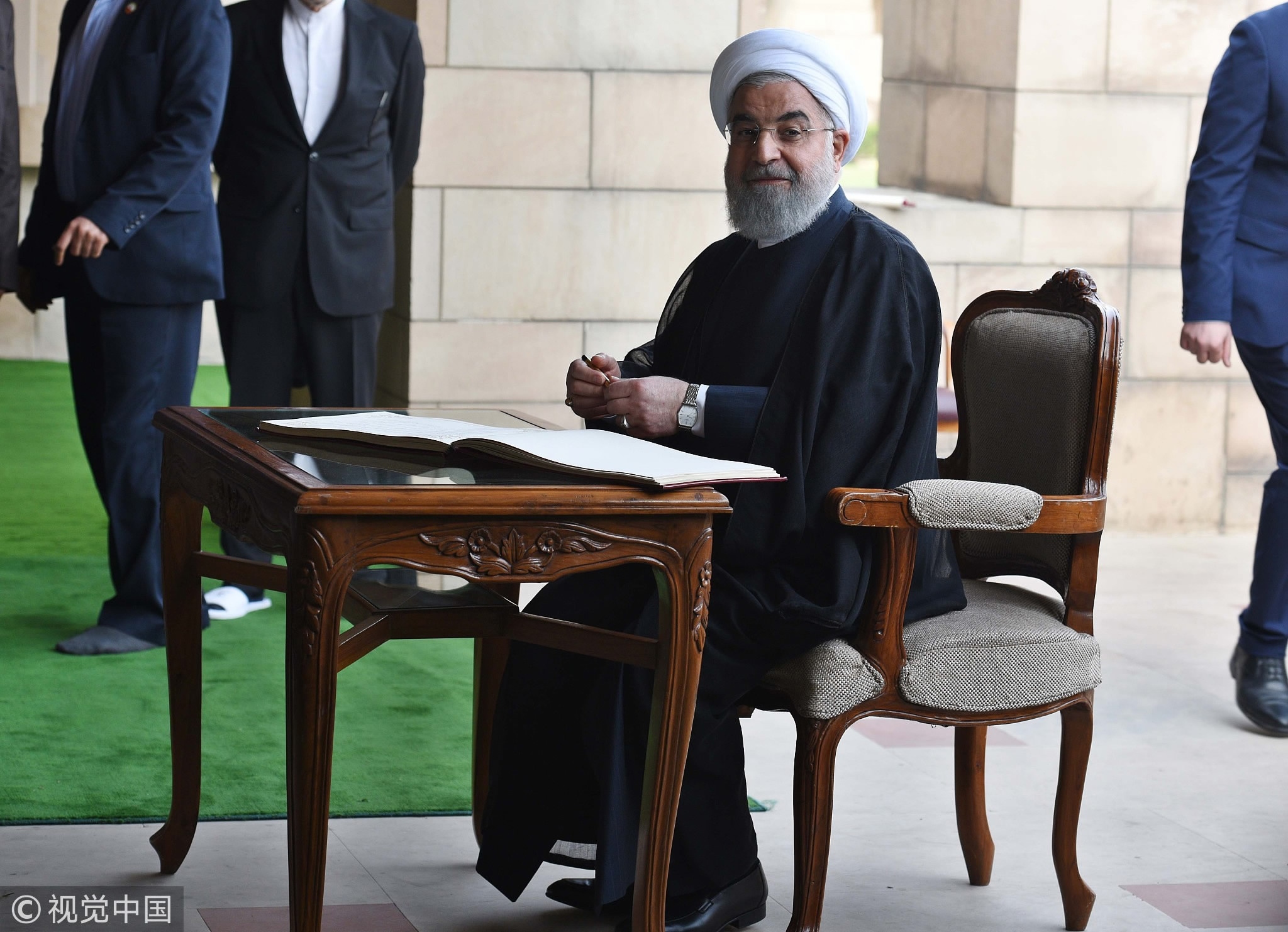
Iranian President Hassan Rouhani after paying tributes at a memorial of Mahatma Gandhi at Rajghat, on February 17, 2018 in Delhi. /VCG Photo
Iranian President Hassan Rouhani after paying tributes at a memorial of Mahatma Gandhi at Rajghat, on February 17, 2018 in Delhi. /VCG Photo
India is trying to develop Chabahar as a way to gain access to the markets of central Asia as well as Afghanistan. But progress is slow because of concern that US President Donald Trump's administration may eventually scrap the Iran nuclear deal.

